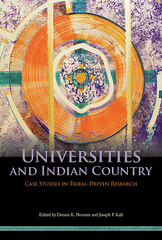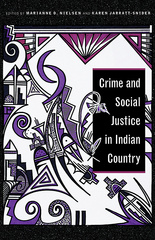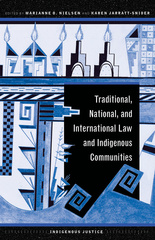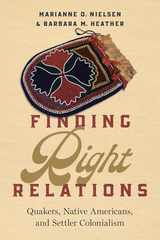Navajo Nation Peacemaking
Living Traditional Justice
Edited by Marianne O. Nielsen and James W. Zion
The University of Arizona Press
Navajo peacemaking is one of the most renowned restorative justice programs in the world. Neither mediation nor alternative dispute resolution, it has been called a “horizontal system of justice” because all participants are treated as equals with the purpose of preserving ongoing relationships and restoring harmony among involved parties. In peacemaking there is no coercion, and there are no “sides.” No one is labeled the offender or the victim, the plaintiff or the defendant. This is a book about peacemaking as it exists in the Navajo Nation today, describing its origins, history, context, and contributions with an eye toward sharing knowledge between Navajo and European-based criminal justice systems. It provides practitioners with information about important aspects of peacemaking—such as structure, procedures, and outcomes—that will be useful for them as they work with the Navajo courts and the peacemakers. It also offers outsiders the first one-volume overview of this traditional form of justice. The collection comprises insights of individuals who have served within the Navajo Judicial Branch, voices that authoritatively reflect peacemaking from an insider’s point of view. It also features an article by Justice Sandra Day O’Connor and includes contributions from other scholars who, with the cooperation of the Navajo Nation, have worked to bring a comparative perspective to peacemaking research. In addition, some chapters describe the personal journey through which peacemaking takes the parties in a dispute, demonstrating that its purpose is not to fulfill some abstract notion of Justice but to restore harmony so that the participants are returned to good relations. Navajo Nation Peacemaking seeks to promote both peacemaking and Navajo common law development. By establishing the foundations of the Navajo way of natural justice and offering a vision for its future, it shows that there are many lessons offered by Navajo peacemaking for those who want to approach old problems in sensible new ways.
The volume’s editors…do an excellent job of enabling this collection of articles to clarify the concepts, meanings, and proceedings of Navajo peacemaking.’ —VOMA
The volume’s editors…do an excellent job of enabling this collection of articles to clarify the concepts, meanings, and proceedings of Navajo peacemaking.’ —VOMA
Marianne O. Nielsen is an Associate Professor in the Department of Criminal Justice at Northern Arizona University. She is the editor, with Robert A. Silverman, of Native Americans, Crime, and Justice and Aboriginal Peoplesand Canadian Criminal Justice. James W. Zion is a private jurisconsult who lives in Albuquerque, researching and writing on Indian court matters, traditional Indian law, and Indian Country justice initiatives. An Adjunct Professor in the Department of Criminal Justice at Northern Arizona University, he was Solicitor to the Courts of the Navajo Nation from 1981 through 1983 and 1991 through 2001.
Acknowledgments
Introduction to Peacemaking Marianne O. Nielsen and James W. Zion
Part 1 The History of Peacemaking
Commentary on Part 1 James W. Zion and Marianne O. Nielsen
1 The Process of Decision Making in Tribal Courts: A Navajo Jurist’s Perspective Tom Tso
2 “Life Comes from It”: Navajo Justice Concepts Robert Yazzie
Part 2 Peacemaking Concepts and Practices
Commentary on Part 2 James W. Zion and Marianne O. Nielsen
3 The Navajo Peacemaker Court: Deference to the Old and Accommodation to the New James W. Zion
4 The Dynamics of Navajo Peacemaking: Social Psychology of an American Indian Method of Dispute Resolution James W. Zion
5 When People Act as if They Have No Relatives: Domestic Abuse Cases in the Crownpoint Family Court James W. Zion
Part 3 Peacemaking Analyses and Assessments
Commentary on Part 3 James W. Zion and Marianne O. Nielsen
6 Perceptions of Justice: The Effect of Procedural Justice in Navajo Peacemaking Eric Kenneth Gross
7 Biã Háí’áázh (“I Am His Brother”): Can Peacemaking Work with Juveniles? Jon’a F. Meyer
8 Navajo Nation Courts and Peacemaking: Restorative Justice Issues Marianne O. Nielsen
9 Hózhôôjí Naatßáanii: The Navajo Justice and Harmony Ceremony Philmer Bluehouse and James W. Zion
Part 4 Conclusions
Commentary on Part 4 James W. Zion and Marianne O. Nielsen
10 Lessons from the Third Sovereign: Indian Tribal Courts Sandra Day O’Connor
11 “Navajo Thinking”: Peacemaking Planning and Policy Robert Yazzie and James W. Zion
12 Epilogue and Dream: A Look Backward and Forward James W. Zion
Commentary on the Peacemaking Readings Marianne O. Nielsen and James W. Zion
Peacemaking Reading List
Contributors
Index











